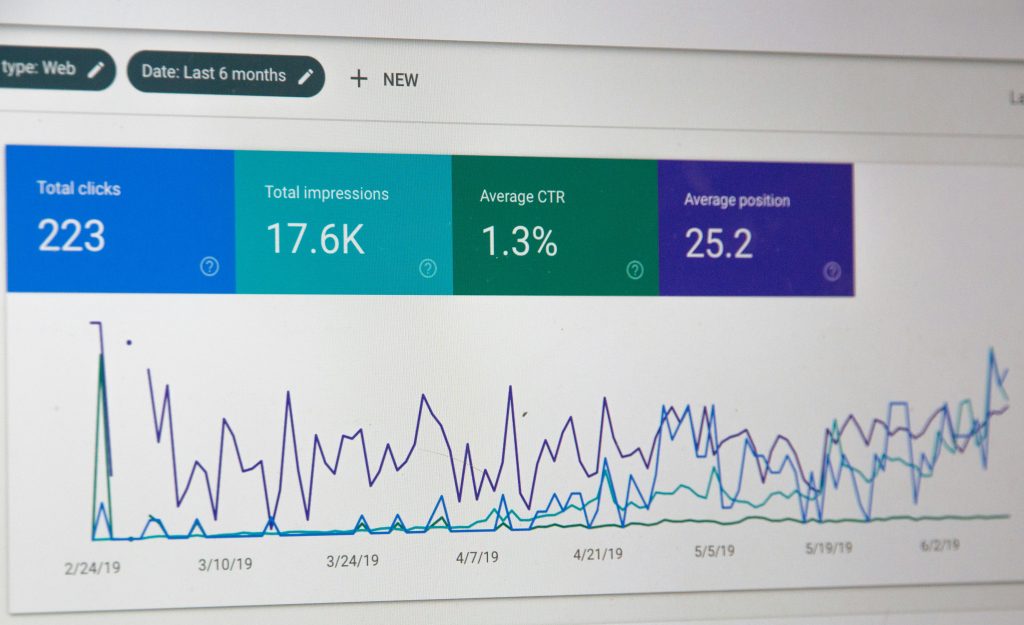
The technological developments of the last 25 years or so have brought great change to the world of business. It has revolutionized the face of society and media and resulted in international market penetration. Now we enjoy worldwide entertainment and multilingual e-commerce from many corners of the globe. Barring cultural differences, there is a need for translation since the audio elements have to be dubbed in the local languages of the audiences wherever the film or drama is shown. It is not surprising that new types of e-commerce translation are required. There is a need for audiovisual translation. Video games are another area where translation is necessary since they are marketed to different countries of the world.
But if you have a business venture with products and services and really want to expand your reach, you would have to depend on excellent cross-border language solutions that take into account the nuances of culture and the finer points of vocabulary to have an impact on local consumers wherever you plan to sell your goods and get global customer reach.
What is E-Commerce Translation?
Put quite simply, e-commerce translation means that you take e-commerce content made in one language and transform it into other languages that are understood by your target audiences. If done correctly, it will result in international market penetration in the long run. Included in e-commerce translation are company websites, product and category descriptions, advertising, marketing text, and e-commerce portals. This will also include the user interface language for communication and understanding purposes.
E-commerce translation refers to changes in language required for multilingual e-commerce transactions. The modern, globalized world has made focusing on a single market an unnecessary restraint for business. You would require cross-border language solutions to increase customer participation in e-commerce transactions on websites because it would significantly increase your sales.
When Stripe, a payment processing vendor looked into European websites to see why they were losing sales in foreign countries, they found that in 9 cases out of 10, it was due to language difficulties during the checkout process. Obviously, it meant the customer was confused, and that incorrect or ineffective translation was the reason that they were leaving the website rather than completing the buying process.
Why E-commerce Translation Matters
E-commerce translation is a very important requirement of global business. It enables a company to expand its network in different countries or regions. Buyers are more likely to purchase brands marketed in their own language. We will explain some reasons why e-commerce translation matters.
It helps grow your customer base
You will be able to reach more consumers in different countries if your e-store is available in the languages that are commonly used by your audience. You can increase your sales in this way. It gives you an edge over your competitors if they have not used this strategy. It’s a great way to increase your sales in nations where English is not spoken frequently.
It makes the site more relatable
With the increase in globalization, you can sell products in different countries. You can use the benefit of translation services to make your brand orders accessible in many languages. It will increase your presence across the world. As you become more well-known in different nations, you will become relatable to a larger audience. It will enhance your brand image.
To be more effective, you should not only aim for grammatically correct language but it should also be phrased naturally so that people understand. This means that you are in line with the cultural sensitivity of the audience.
It increases SEO visibility
Do you know that if your e-commerce site is available in different languages, it will improve your visibility with search engines? More potential customers will be able to find your store online through search results. This increases customer traffic and impacts sales. Your SEO ranking will improve if your website is translated and indexed well.

It results in more conversions
No one would spend time on a website they find difficult to understand. Translate the content so that it can be understood by native speakers. They will be more likely to stay and browse the website. It increases the chance that they will buy your products. Customers with a positive experience are more likely to recommend a website to others. It will increase your conversions. Making a website that is hard to read or follow will increase the bounce rates and result in wasted effort.
It makes you stand out
If you have used translation services to create a website in different languages, it shows that you care about your target audiences. You want to make the online process easier for them to understand and use. You would like shoppers in different nations to be able to buy from your site, wherever they may be.
Shoppers appreciate efforts from an online business to translate their website. It requires effort but is a wise investment. They will be more inclined to buy from a business that respects them.
It makes you more authentic
When buyers see that you have spent time and money to create a website in multiple languages, they will regard your business as more authentic. It allows your business to become a global entity. It also increases the level of trust that people have in your business, which is why they are more likely to select your products and services over others.
Getting a good and authentic translation done is challenging because you have to avoid idiomatic phrases and be culturally sensitive to have the right impact on your target audience.

Kinds of Translation Required in E-Commerce
E-commerce has taken the world by storm and has far surpassed the sales of brick-and-mortar locations of businesses. In the US, total online sales amounted to $1,118.7 billion in 2023.
It may surprise you to know that though English is regarded as an international language, 75% of the world’s population prefer to view websites in their own local and regional languages. All the more reason for translation services, if you ask me.
E-commerce translation means that we localize the following elements:
- Company website
- Online selling platform
- Product titles and descriptions
- Category details
- Legal clauses and customer self-service
- Advertising and image details
- Contact information
- Search keywords in the local language optimized for SEO
Now we will further explore the stated elements:
Translating Websites
If you really want to go international, you should consider creating your website presence in at least two languages, one English and the second the official language of the country whose audience you are targeting for sales. You must try to get the best translation services possible.
Customers like to order goods from online sites in their own language. The user-friendliness and convenience that they experience might even relegate price to being a secondary consideration.
You would need to translate the entire content of a website. Take care to use professional translators well versed in the local language.
Converting the Language of Online Stores
Online stores need to be converted to local languages so that customers can understand and operate them. You also need to convert Amazon store or other selling platforms to local form so that customer transactions are facilitated.
Interface Translation
This is important because it affects the user experience and includes all buttons, prompts, and messages. Incorrect placement and flow will adversely affect this. Spelling or grammar errors and poor presentation will create doubts in the user’s mind.

Titles of Products
It should be clear and informative. Use keywords that make sense in the particular language. You should take care to create titles that do not lose their meaning when translated. American beer company Coors made a mistake with its Coors campaign in Spanish-speaking Mexico when the slogan ‘Turn it loose’ translated to ’ suffer from diarrhea’. Similarly, American Airlines, seeking to advertise their leather seats used the slogan ‘Fly in leather’ which translated verbatim to ‘Fly naked’.
Describing the Item
A well-written product description will induce a customer to buy a product. It shows them the benefits they will gain. Using graphics and bullet lists will help promote the item better.
Category Titles
The titles should be translated correctly and be on point. An experienced translator will choose words with the right meaning and connotation.
Describing the Classifications
Product descriptions of the different categories will help SEO by positioning your website better in search engine rankings. This translation needs to be completed in the presence of SEO experts, who understand its importance.
Legal Clauses and Customer Self-Service
This content, though not marketing material, is nevertheless necessary. It builds trust with the customer and gives them an idea of their rights of recourse. Rules for returns, FAQs, shipping information, and other terms and conditions are important to build trust with users.
Translating Advertisements
Advertisements are a key target for misrepresentation, as their language and slogans do not readily convert with the same shade of meaning. We must consider the cultural context. The act of localizing an advertisement is called transcreation. We have to look at idioms and wordplay. Keeping the idea close to the original is what is needed.

Newsletters and Mailing Lists
It relates to the conversion of newsletters, emails, and shipping services. The customers must be attracted to open the emails to take advantage of the promotional and discount offers. It will fill the customers with anticipation and excitement.
Proper SEO Translation
Always remember that you should use different tools to get the SEO results in different languages. You should research them separately rather than rely on the same tool and just change the country. Use different key phrases and keywords for different languages.
Summing it Up
You have to admit that the world is a global marketplace and you stand to gain if your e-commerce sites are translated into different languages. By translating your website and marketing materials into the languages of your target markets, you can increase brand awareness, improve customer satisfaction, and boost sales. When approaching e-commerce translation, it is important to consider the cultural nuances of your target audience and to use high-quality translation services.
TranslateSwift offers translation services that can be used for all kinds of documents from legal agreements to marriage certificates and immigration papers. Contact us today and see how we can help you expand your business reach on a regional or global scale by converting your e-commerce websites to your languages of choice.

FAQs – E-commerce Translation
Is machine translation better than using a professional translator?
Machine translation is just a starting point. You are better off with a professional translator who understands cultural sensitivity.
Why is translation a business necessity nowadays?
The world has become a digitally accessible global marketplace. You need translation services to spread information about your products/services and get people from different countries to buy them.
How is marketing translation beneficial?
Translating marketing material has many benefits. It reduces communication barriers, speaks the customer’s language, and reaches a wider audience. It also lessens miscommunication and creates a positive image for the business.
Does e-commerce translation have SEO benefits?
E-commerce translation benefits SEO by ranking higher for websites in different languages. This improves SEO results.










